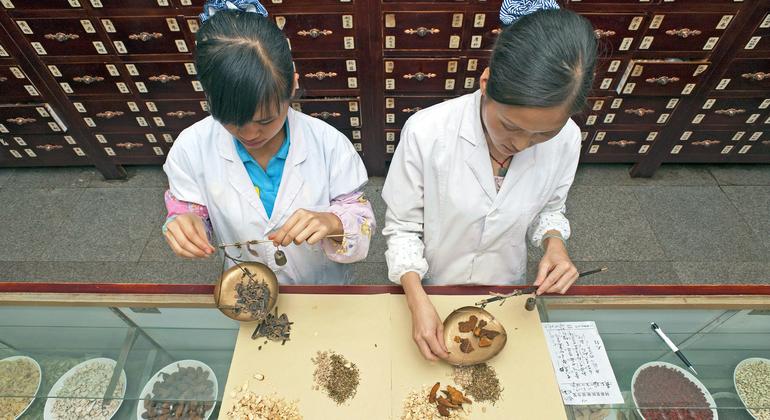Sure! Here’s the translation into American English:
—
Traditional medicine, rooted in over 170 countries and used by billions of people, is poised for a significant transformation thanks to artificial intelligence. During the recent Global Summit “AI for Good” in Geneva, the World Health Organization (WHO), the International Telecommunication Union (ITU), and the World Intellectual Property Organization (WIPO) presented a report highlighting how the convergence of these two areas can enhance healthcare, making it safer, more personalized, and more accessible.
This report is part of the Global Initiative on AI for Health, aimed at guiding countries and communities in the responsible use of artificial intelligence, prioritizing the preservation of ancestral knowledge and data sovereignty. The document provides concrete examples of how this technology is being utilized in various regions, from algorithm-assisted diagnostics in Ayurvedic medicine in India to machine learning models identifying medicinal plants in Ghana and South Africa. Additionally, research is being conducted in South Korea using AI to analyze traditional compounds that could be useful in treating blood diseases.
Seizo Onoe, director of Standardization at the ITU, emphasized that the goal is for all countries to benefit from technological solutions that are safe, effective, and ethical. The report highlights the need for access to quality data and the creation of technologies that involve local communities. Examples like the Digital Library of Traditional Knowledge in India and the Virtual Health Library in Latin America show how artificial intelligence can play a vital role in preserving ancestral knowledge and fostering fair collaborations.
Meanwhile, Edward Kwakwa, deputy director general of WIPO, underscored the importance of intellectual property in integrating AI into traditional medicine, ensuring that Indigenous peoples not only protect their knowledge but also derive benefits from it. The report calls for respecting Indigenous data sovereignty and proposes legal frameworks and governance models that guarantee the free, prior, and informed consent of the communities involved.
Despite the substantial potential that artificial intelligence holds in a global traditional medicine market that could reach $600 billion by 2025, the study warns that this technology should not become a means of exploitation. Yukiko Nakatani, head of Health Systems at the WHO, highlighted the importance of local communities being key players in this process, rather than mere spectators, in the use of artificial intelligence.
—
Let me know if you need anything else!
Referrer: MiMub in Spanish










